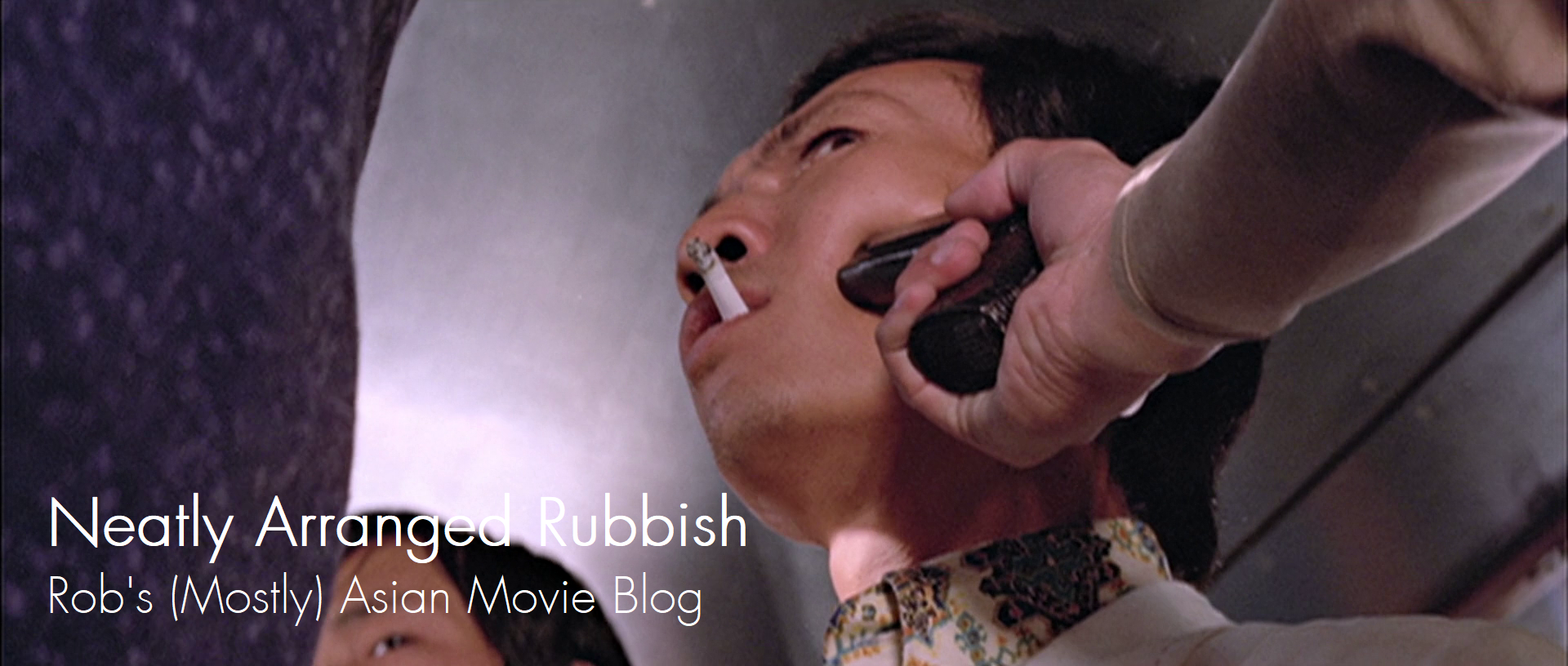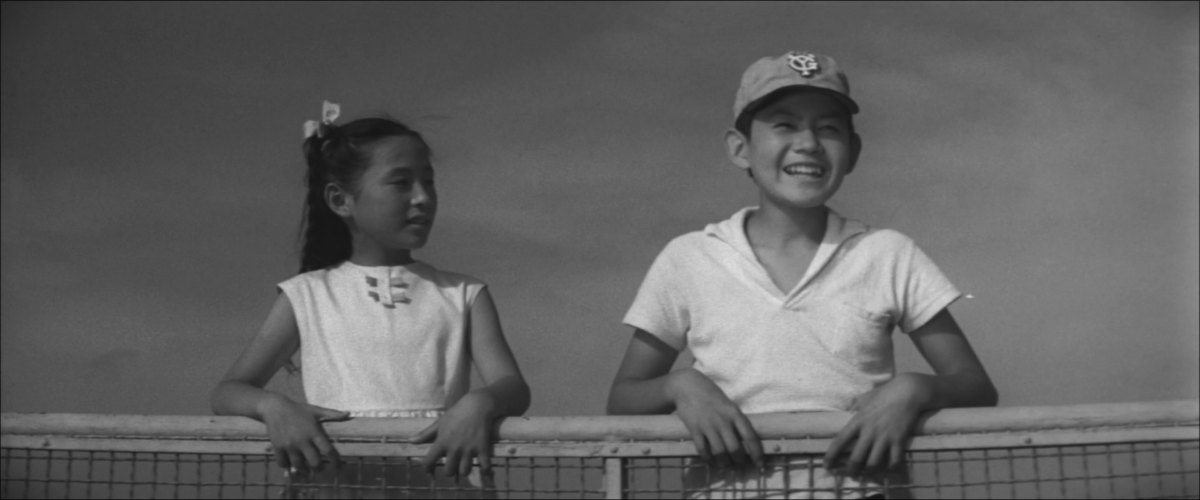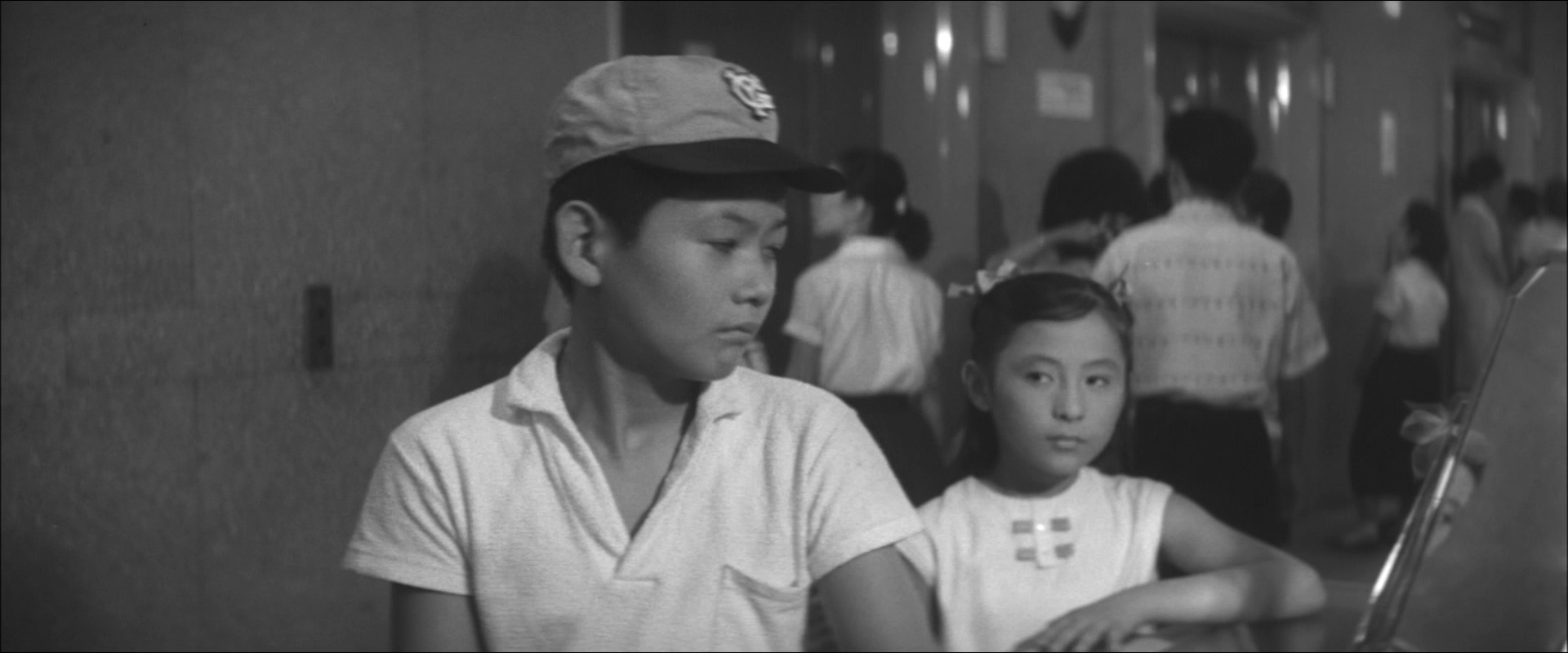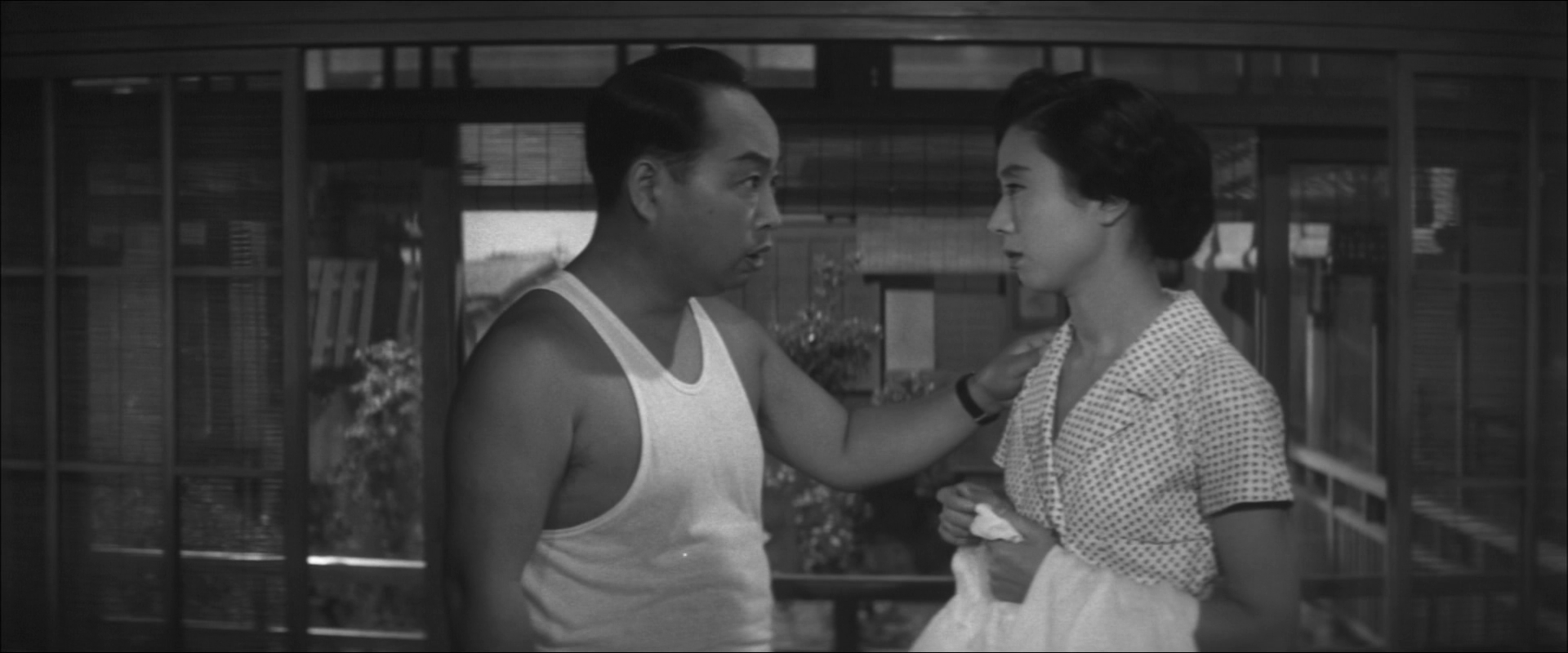Last Updated on April 18, 2021 by rob
Middle-aged widow Shigeko (Nobuko Otowa) and her 11 year old son Hideo (Kenzaburo Osawa) arrive in Tokyo to stay with relatives. As Shigeko finds hostess work at a local inn Hideo gets into scraps with the local kids before befriending Junko (Futaba Ichiki), the 9 year old daughter of his mother’s employer. But after Shigeko runs off with a salesman the boy finds himself abandoned into the reluctant care of his relatives. Now good friends with the boy, Junko begs her mother to adopt Hideo but her mother is only concerned with an impending reunion with her estranged husband.
Two superbly understated performances from child actors Kenzaburo Otawa and Futaba Ichiki are the heart and soul of this wonderful film about childhood hopes and dreams that end up dashed by the realities of adult life. It has the usual elements of a Naruse film, not the least of which is a struggling working class woman (a sincerely felt performance by Nobuko Otawa) but Ryozo Kasahara’s script offers a fresh perspective because everything is seen through the eyes of the two children. Although the younger family members – such as brother Shotaro (Yosuki Natsuki), who takes Hideo for a joyous nighttime ride around Tokyo on the back of his moped, and sister Harue (Hisako Hara) – have much more a zest for life Naruse doesn’t make the error of turning the older adults into uncaring monsters.
Whether it’s Shigeko’s forlorn desperation not to be left on the shelf, the yearning of Junko’s mother to get back together with her estranged husband, or the drunken, tightfisted character of Hideo’s uncle, (a man so mean he feeds his family with out of date vegetables from his greengrocer’s shop!) Naruse depicts these characters with a clear eye, using the honesty of the children to illuminate their strengths and weaknesses. The result is bracingly bittersweet. In fact that honesty supplies the film with some of my favourite moments. His attention captured by a photo in Junko’s bedroom Hideo asks the little girl if it’s her Dad. ‘He looks pretty old’ says Hideo. “No”, replies Junko, “My mother says he looks young for his age.” Lol, as they say.
There’s also a very Ozu-like moment here as the two kids exchange distinctly unimpressed looks after a shop assistant tries to ingratiate herself with them. And I loved the negotiation of a wire fence by a group of children in which the 11 year olds swarm up and over like monkeys while the infants scrabble straight underneath. Naruse cleverly uses actual locations – the children frequently play on ground earmarked for construction – to suggest that everything connected to Hideo’s childhood is in flux. Ichiro Saito’s wistful, melancholy music perfectly underscores the emotions on display here. It’s a funny film in many respects but also a very poignant one. Your heart just aches for Hideo when Junko blithely suggests that his mother has run off for good, or when the boy goes looking for his mother at her lodgings and finds only a baseball glove intended as a present with which to buy his affections for her new boyfriend.
When Hideo reacts by kicking it across the room you fully sympathise with his feelings. Another memorable sequence in which Junko is taken by her mother to meet both her father and his selfish, ghastly kids simply underscores how much Hideo and Junko deserve each other. The climax – in which Hideo races across town to give Junko the beetle she’s requested for her science class only to find an empty house and a departing removals truck – is so crushingly sad. The final scene as Hideo and his pet beetle gaze out over the sprawl of urban Tokyo – a crowded horizon of infinite possibilities and each one of them out of reach for the little boy – will, I think, strike a chord with anyone who remembers what it was once like to be Hideo’s age. This is a film full of sentiment but never once sentimental and it remains my favourite of Naruse’s exceptional filmography.



